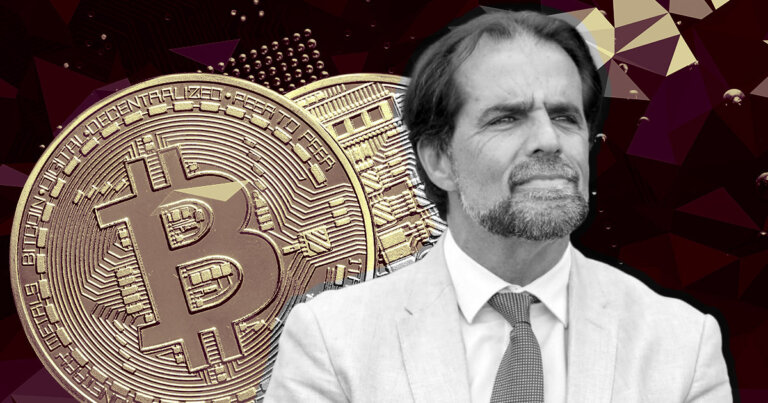 Island nation of Madeira hopes to copy El Salvador’s Bitcoin success
Island nation of Madeira hopes to copy El Salvador’s Bitcoin success Island nation of Madeira hopes to copy El Salvador’s Bitcoin success
Members of the advisory board discuss how the push for Bitcoin adoption is panning out in Madeira at Bitcoin Amsterdam.

Cover art/illustration via CryptoSlate. Image includes combined content which may include AI-generated content.
The President of Madeira, Miguel Albuquerque, announced his explicit support for Bitcoin in May, saying BTC and Bitcoiners are welcome.
The President further added that plans are in place with infrastructure startup Jan3 to broaden integrations with the local economy.
“Me, and Samson [Mow], and Jan3, [are] going to continue to work to the future… and to create, in Madeira, a fantastic environment for Bitcoin.”
Approaching six months since the announcement, a panel of board members advising the Madeira project discussed the matter at Bitcoin Amsterdam.
The Bitcoin inflection point
The panel consisted of Daniel Prince (Podcaster) moderating, Troy Cross (Bitcoin Policy Institute,) Jeff Booth (Entrepreneur,) Knut Svanholm ( Author,) and André Loja (Madeira resident).
Speaking about the project, Booth said when first invited, he was curious about sounding out the situation in terms of whether the President was serious about Bitcoin adoption, especially in terms of consideration of the long-term, including potential E.U. resistance.
Expanding on the last point, Booth broached the possible scenario that a financial collapse could end the fiat money system, leading to a future inflection point for global governments.
“As the system breaks down, governments are going to be faced with choices, and they are going to ride the fiat horse or the Bitcoin horse, and for a while, they are going to have to ride two horses and then they are going to have to choose.”
Based on meetings with the President, Booth said he understood the Madeiran administration to be seriously committed to developing Bitcoin infrastructure, despite the potential conflict that could bring with the E.U.
Drawing parallels with Bitcoin Beach, a dedicated ecosystem popular with tourists located in El Salvador’s El Zonte, Booth said Madeira could be considered Europe’s version.
How are things progressing?
Tabling a question from the audience on autonomy from Portuguese rule and merchant adoption takeup, Loja explained that Madeira has its own parliament but is still limited in terms of overruling certain areas, such as tax legislation.
“If the mainland Portugal government decides to tax crypto, as there is a proposal already, we cannot decide not to do it. But we can apply a difference.”
Booth added that Madeira relies on E.U. subsidies, making it difficult to overtly and openly go against E.U. mandates. However, he said these matters have been discussed, and the appropriate strategy to overcome Bitcoin adoption resistance is by making a case for jobs and economic growth.
“You make a case not by yelling at the existing system; you make your case stronger [by saying] we critically need the jobs and talent that is building on top of the base layer and going to form the new internet.”
On merchant adoption, Prince conceded that the uptake has been low. Svanholm commented that Bitcoiners can do their part in accelerating matters by visiting the island, spending sats, and spreading the word.
“We’re just this group of people helping the Madeiran government do a smooth transition into the new paradigm. But of course, the more Bitcoiners that are there, the more Bitcoin companies that are there, trying to orange pill cab drivers and waiters the better.”
What was accomplished in Madeira?
Svanholm said hyper-bitcoinization is happening regardless of whatever else is going on in the world, including the Madeira project itself.
With that, the choices are “a smooth transition or a rough one,” and the advisory board’s purpose is to make the transition for the island a smooth one.
It is well-documented that El Salvador has had GDP growth and a tourism boom as a result of making BTC legal tender. While Madeira has yet to achieve that status, Booth is confident history repeats, which, in his view, will lessen objections from locals.
Madeira is a semi-autonomous region of Portugal, located approximately 1,000 kilometers from Lisbon, off the North West coast of Africa, nestled in the Atlantic Ocean.
The archipelago comprises the Madeira, Porto Santo, and Desertas islands. The region is known for its mild subtropical climate and incredible natural beauty.










































































































